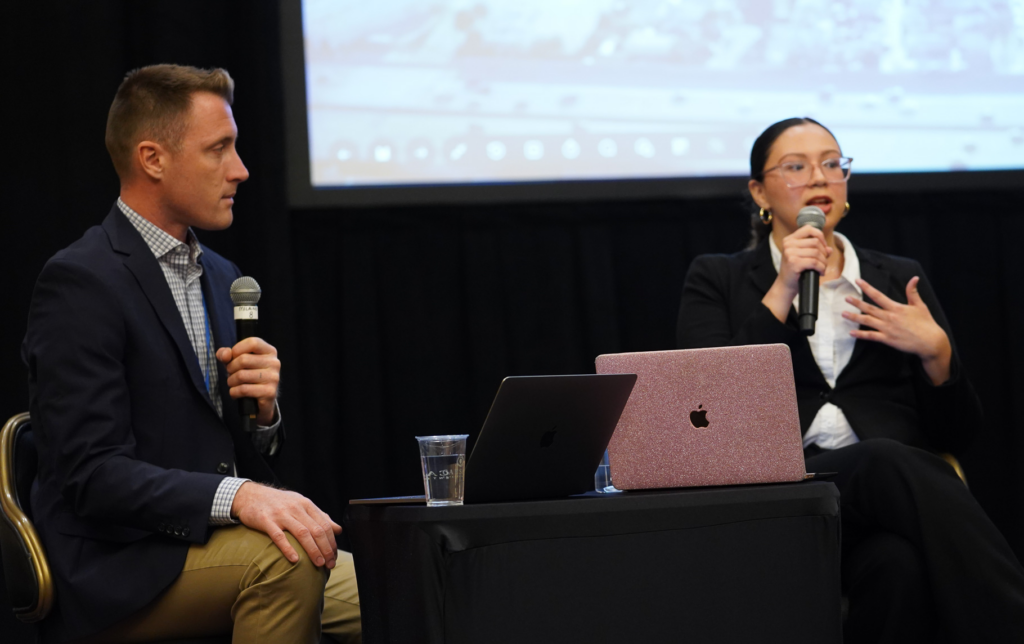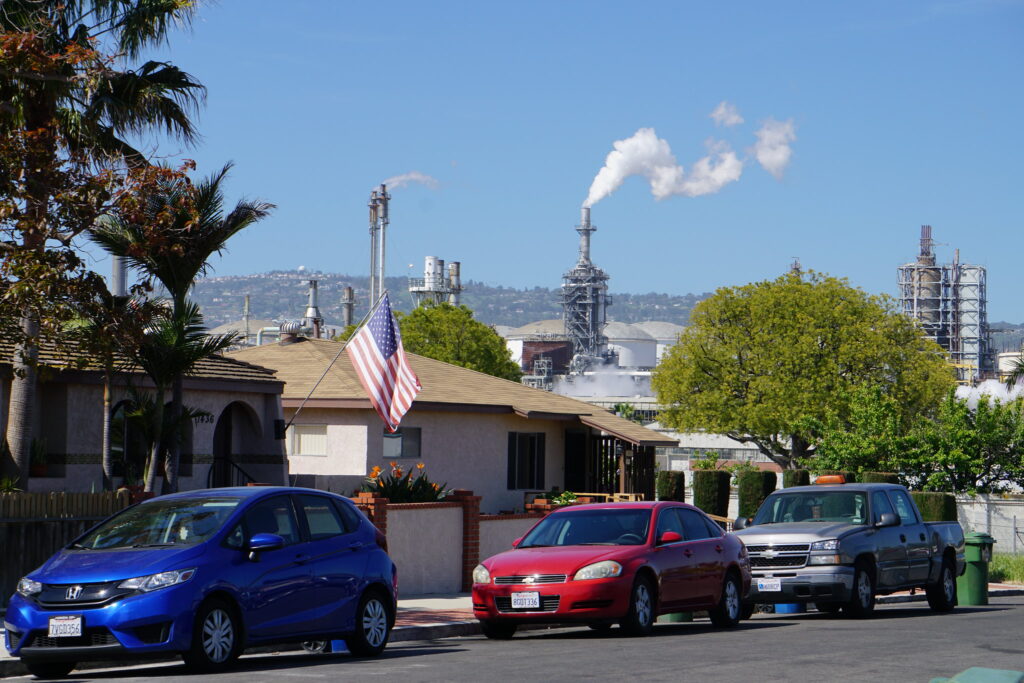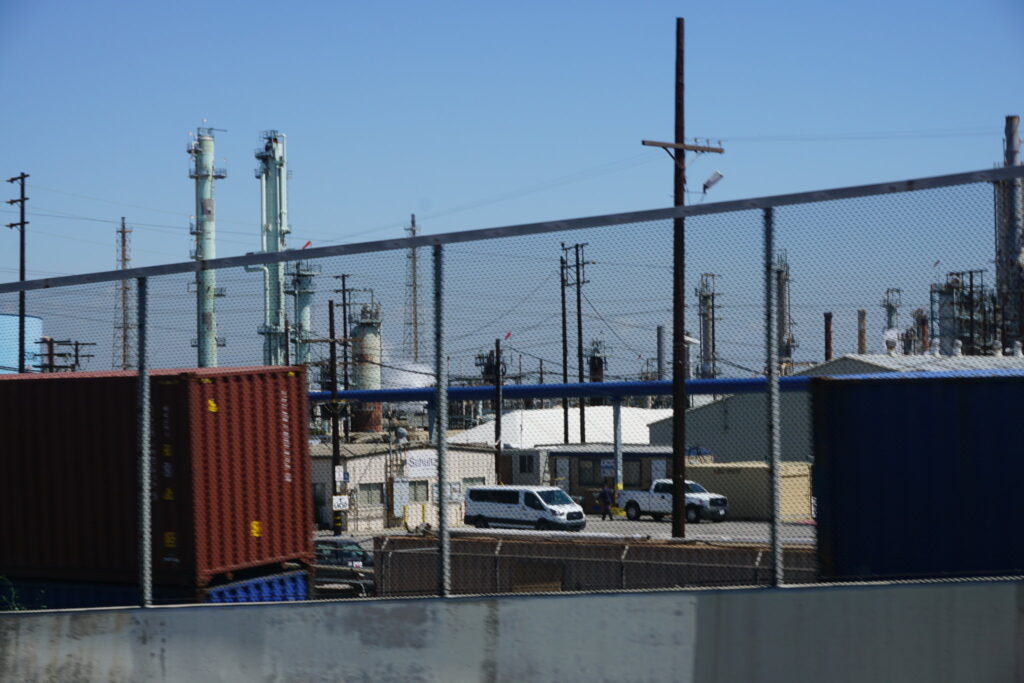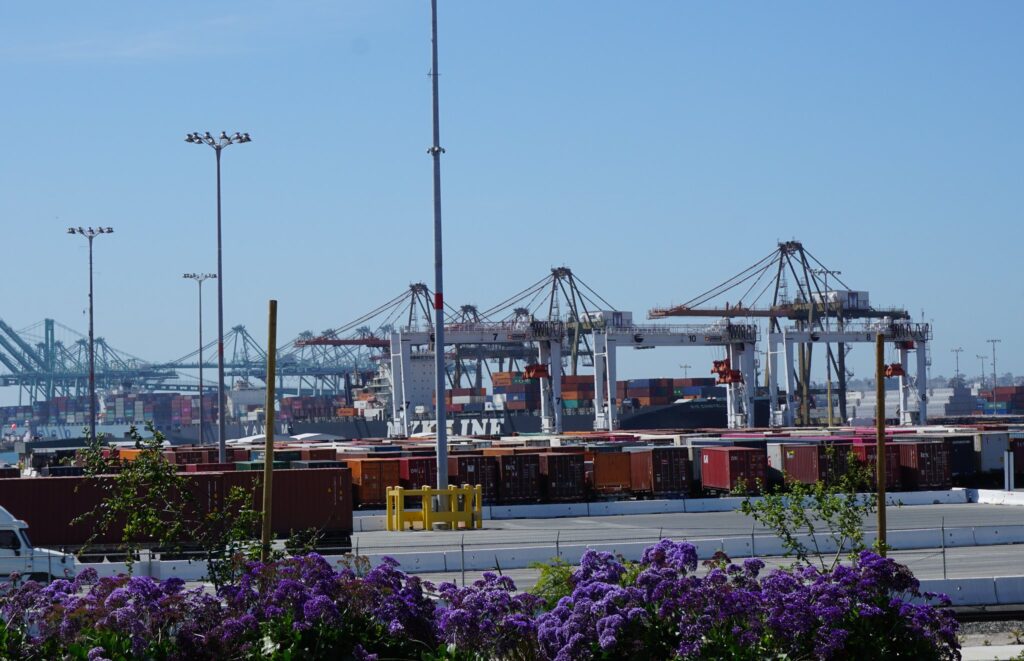On the Frontlines of Climate Justice
At the end of June, I attended the National Convention of the League of United Latin American Citizens (LULAC), one of ecoAmerica’s most active partners. LULAC has been taking bold leadership on climate change. At the convention, I delivered a Climate Ambassador Training to over 200 eager young people. This effort was aided by Brittney Curiel Moreno, a LULAC Policy and Legislation Fellow and recent graduate of UC Berkeley, who I engaged in dialogue about climate impacts and solutions. Some of Brittney’s reflections are included below.

Photo by: LULAC
What’s your story? Can you describe where you come from?
I grew up in Wilmington, a small refinery town in Los Angeles County, known for having the third largest oil field in the continental United States and the Port of Los Angeles. Amidst the constant activity of various factories and the steady flow of semi trucks, green spaces are scarce, comprising only about 5% of the land.
These industrial giants have caused numerous environmental issues. Millions of pounds of toxic air contaminants and hundreds of pollutants have filled the air and nearby waters, making it hard to breathe every day. Smog hangs over the town, thickening the air and making mornings a constant battle against the strong refinery odor. The beaches nearby are closed due to port activities, their waters stained deep brown by pollution. The shortage of parks and sidewalks makes the already tough climate even worse.
Wilmington has around 50,000 residents, with nearly 90% being Latinx. Many struggle with poverty, often relying on the industries that also create environmental problems. Despite these challenges, the community keeps going, facing these tough realities every day.

Image (CC: BY-NC): https://www.flickr.com/photos/156678922@N05/32652793117/
Can you describe your experience of climate change? What changes have you noticed over the years?
My experience with climate change in Wilmington has been difficult . Living in this small refinery town in Los Angeles County, we face significant environmental challenges exacerbated by the effects of climate change. The refinery in our town releases massive amounts of toxins and chemicals into the atmosphere, contributing to severe air pollution issues. This pollution not only affects the immediate surroundings but also impacts air quality in the broader region.
One noticeable effect of climate change here is the increasing temperature compared to neighboring areas like Long Beach and Palos Verdes. Wilmington often experiences temperatures that are about 5 degrees hotter than these nearby cities. This heat exacerbates our daily lives, making it uncomfortable and posing health risks, especially for vulnerable populations.
Health issues are prevalent among residents. We see high rates of respiratory illnesses such as lung cancer, skin cancer, and asthma, directly linked to the poor air quality and pollutants emitted by industrial activities. These health concerns have been a longstanding issue and have only worsened with time.
During the COVID-19 pandemic, Wilmington faced particularly grim challenges. It had one of the highest rates of deaths in Los Angeles County, underscoring the vulnerabilities exacerbated by existing health disparities and environmental burdens.
Overall, my experience with climate change in Wilmington has been marked by striking environmental impacts, serious health risks from pollution, and a heightened sense of urgency to address these interconnected issues affecting our community.

Image (CC: BY-NC): https://www.flickr.com/photos/156678922@N05/32652791397/
How has your family been personally impacted?
My family has been profoundly impacted by the environmental challenges in Wilmington, particularly due to our close proximity to the refinery. Living in this industrial town has taken a toll on our health in various ways. Me and my three siblings have developed asthma over the years, which has resulted in numerous hospital visits and ongoing management of our condition. This has greatly affected our quality of life and added significant stress to our family.
In addition to our respiratory issues, our father, who works directly in the refinery, has faced serious health consequences. He has battled skin cancer twice, which he attributes to prolonged exposure to toxins and chemicals as part of his job. These health scares have been frightening for our family and have underscored the risks associated with living and working in an environment heavily impacted by industrial pollution.
These personal experiences have heightened our awareness of the urgent need for improved environmental regulations and protections in our community. We continue to advocate for cleaner air and safer working conditions, not only for our family but for all residents of Wilmington facing similar health challenges due to industrial activities.

Image (CC: BY-NC): https://www.flickr.com/photos/156678922@N05/46679640005/
What feelings do you have about the harm that the refinery is causing at the same time that it provides employment for your family? Do you feel any inner conflict?
I don’t feel any inner conflict. My father, a Mexican immigrant with limited educational opportunities growing up, works in the refinery to support our family of six. He doesn’t have many other options given our circumstances. While the refinery has brought economic stability, it has also brought health challenges due to pollution.
Luckily, my father is a strong advocate for transitioning to cleaner energy sources because he understands the environmental impact firsthand. He encourages me to continue advocating and sparking conversations about the need for cleaner air and safer environments in our community. This dual perspective has shaped my feelings into a commitment to seek solutions that balance economic needs with environmental responsibility, ensuring a healthier future for all.
What would you say to others who rely on the fossil fuel industry and who might be nervous about the transition to clean energy?
To those who rely on the fossil fuel industry and may feel nervous about transitioning to clean energy, I would say that this shift should not be feared. It is inevitable and essential for the betterment of society as a whole.
Importantly, transitioning to clean energy does not equate to a loss of jobs. In fact, my father’s experience is a testament to this. Despite primarily working at the refinery, his union has provided him with a range of skills and job training opportunities, including work at solar plants. This demonstrates that the transition to clean energy can create new job opportunities and pathways within existing industries.
The move towards cleaner energy sources is not just about reducing environmental impact but also about fostering innovation, creating sustainable jobs, and improving public health. It’s a shift that benefits everyone in the long run, ensuring a healthier environment and economy for future generations.
About the Authors
Brittney Curiel Moreno is a Policy and Legislation Fellow at the League of United Latin American Citizens. She is a recent graduate of UC Berkeley.
Additional Resources
Watch the American Climate Leadership Awards 2024
Watch the 2024 American Climate Leadership Awards for High School Students
Mental Health and Our Changing Climate: Children and Youth Report 2023
